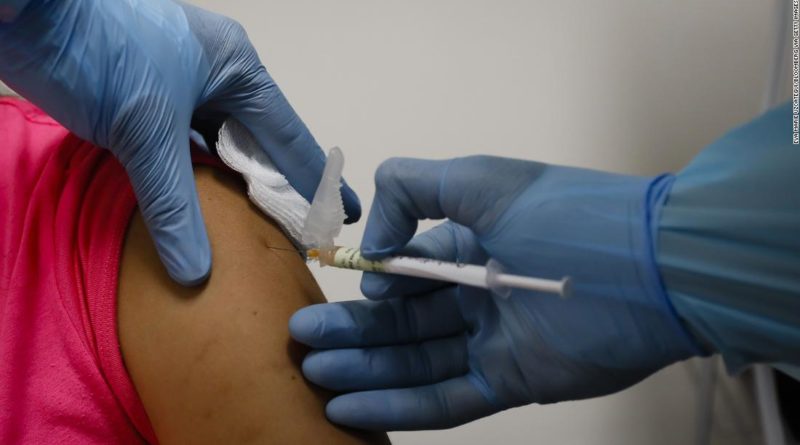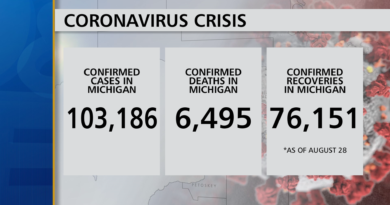Free Covid-19 vaccines: Federal government details distribution plans
Operation Warp Speed aims to have Covid-19 vaccines moving to administration sites within 24 hours of an FDA license or emergency use authorization, an official said. And the aim is to make them free of charge.
“We will move that as fast as possible, within a day or so, to administration sites after we get the word from the FDA,” said Lt. Gen. Paul Ostrowski, the deputy chief of supply, production and distribution for the federal government’s Covid-19 vaccine effort, said during a briefing.
But supplying and distributing those vaccines is a complex logistical puzzle involving the US Department of Defense, US Centers for Disease Control and Prevention and other parts of the US Department of Health and Human Services.
Vaccines now in trials have different transport and storage requirements, some involving extremely cold temperatures; some require a second dose at 21 or 28 days after the first, and they aren’t interchangeable; and some require particular needles and syringes.
“We’re dealing in a world of great uncertainty,” Paul Mango, deputy chief of staff for policy at the US Department of Health Human Services, said during the briefing with reporters. “We don’t know the timing of when we’ll have a vaccine. We don’t know the quantities. We don’t know the efficacy of those vaccines.”
Early vaccine supplies will be limited
The CDC vaccine program playbook says that for planning purposes, state and local health agencies should assume “limited COVID-19 vaccine doses may be available by early November 2020” if a vaccine is authorized or licensed by the FDA. The playbook says vaccine supplies may increase substantially in 2021.
That limited initial supply is expected to go to health care workers, other essential workers and people at higher risk for severe illness from Covid-19.
Administration sites may be limited early on to target particular populations and storage requirements. Later, sites could expand to include pediatric and adult health care providers and pharmacies.
IT infrastructure is underway
Operation Warp Speed’s Ostrowski said during the briefing Wednesday that databases to track vaccines already exist at state and pharmacy levels.
“The hard part is being able to get the databases to talk with one another,” he said, for example, so that he could get a vaccine at a public health center and then get the correct second dose weeks later, perhaps at a pharmacy in a different location.
‘No American will be charged’ for the vaccine
“In terms of a principle and an aspiration, it’ll be that no American has to pay a single dime out of pocket to get a vaccine,” HHS’ Mango said Wednesday. “And we’re getting very close to that aspiration right now.”
The vaccine distribution strategy released Wednesday says the objective is “to ensure no one desiring vaccination will face an economic barrier to receiving one.”
“The federal government is procuring hundreds of millions of doses of safe and effective vaccines, and has contracted with McKesson for purposes of vaccine distribution, such that no American will be charged for either the COVID-19 vaccine or its distribution,” the strategy document says.
Dr. Anthony Fauci, director of the National Institute of Allergy and Infectious Diseases, said during a Congressional Hispanic Caucus Institute panel on global pandemics Wednesday that the only cost might be related to administering a vaccine.
“I don’t think there’s going to be a problem with the cost because I think people don’t fully appreciate the vaccine itself has already been bought by the federal government,” he said. “So a person who gets a vaccine will not pay for the vaccine.”
Vaccine information campaign to come
The strategy document also says an information campaign led by HHS public affairs “will focus on vaccine safety and efficacy, and target key populations and communities to ensure maximum vaccine acceptance.”
“Identifying the right messages to promote vaccine confidence, countering misinformation, and targeting outreach to vulnerable and at-risk populations will be necessary to achieve high coverage,” it says.
According to CNN poll conducted last month, 40% of Americans say they won’t get a Covid-19 vaccine, even if it’s free and easy to get.
“Those who are vaccine hesitant have had their hesitancy enhanced by a variety of things that are happening right now, particularly the unfortunate mix of science and politics,” National Institutes of Health Director Dr. Francis Collins said Wednesday at an event hosted by The National Academies of Sciences, Engineering and Medicine.
Collins stressed the need for vaccine education from trusted voices, especially in minority communities.
“I don’t want to have us, a year from now, having a conversation about how we have in our hands the solution to the worst pandemic of more than 100 years, but we haven’t been able to actually convince people to take charge of it,” he said.





